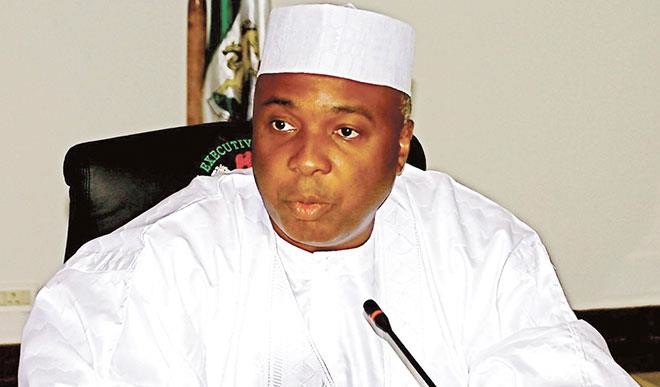Budget 2016: Testing ground for legislative agenda
Just as the taste of a plate of pepper soup is in the eating, so the forth coming 2016 budget of the Federal government provides an ample opportunity for both chambers of the Eighth National Assembly to test for the first time, the merits or otherwise of their various legislative agendas. As is easily recalled […]


Just as the taste of a plate of pepper soup is in the eating, so the forth coming 2016 budget of the Federal government provides an ample opportunity for both chambers of the Eighth National Assembly to test for the first time, the merits or otherwise of their various legislative agendas. As is easily recalled both the present Senate and House of Representatives both of the Eighth National Assembly, had at the inception of their tenures, independently evolved and adopted for use in the next four years, a schedule of prescribed legislative steps to be taken in furtherance of good governance in Nigeria.
For instance the agenda of the House of Representatives rightly opens up with an admission that the Eighth National Assembly takes off against a background of huge expectations from Nigerians, especially in the light of the change mantra, on which the ruling political party – the All Progressives Congress (APC) rode into power. As also captured in the agenda document, the House recognizes that there exists a “widespread citizen distrust of public institutions and government generally”. It further avers that its positiondraws from lessons which are associated with the experiences of the Seventh National Assembly and by implication those of previous assemblies.
Against the backdrop of the fore going, the House on behalf of the National Assembly “intends to assert itself by providing leadership in the areas of accountable and transparent government, citizens engagement and constituency representation”. To actualize these the House will foster all necessary collaboration with the executive arm and the judiciary as well as other stakeholders in order to move the country forward.
Meanwhile as far as the 2016 budget is concerned, it will not be business as usual; that is whenever it comes. The expectation of a new deal in 2016 budget is associated with the various twists and turns which it promises to introduce into the daily lives of Nigerians, all in the name of change in the status quo.
Incidentally the change dispensation around the Buhari administration has been manifesting in different forms. While some were associated with him before the election others came up with his election and its aftermath. Yet it is the 2016 budget that will place in proper perspective the administration’s programme for articulating the various faces of the change into coherent deliverables.
For instance even before the budget sees the light of day several areas of change it intends to usher in are already manifest. Just as well it is no more asecret that the budget aims at an ambitious revenue target of 8 trillion naira which is almost twice the sum of N4.962 trillion for 2014 and N4.425 trillion for 2015. The budget also contemplates on a rather contradictory note, to reduce recurrent expenditure while distributing handouts to unemployed Nigerians. As is being advocated by the government the sum of N6 trillion is earmarked for distribution as handouts in the next four years. Beyond the snippets on the 2016 budget that surfaced in the public space, several other insights have emerged, thanks to the minsters who are trying to get on top of the tasks facing their various briefs.
A striking feature of these ‘ministerial revelations’ is the patent disconnect between the priorities some of them are adopting and what is of immediate relevance to the people. Atypical instance in the case of the Minister of the Federal Capital Territory who suddenly adopted the completion of the Abuja light rail project as his new priority. It is not likely that the gentleman has traversed the length and breadth of the FCT, in his know your brief (KYB) tour, especially the satellite towns, to see for himself the real depressed quality of life the residents are condemned to.
Given the age long slum status of the satellite towns it is difficult to see how a minister of the FCT can adopt any project as priority before the plight of these communities.
However the dispensation whereby whatever provisions that shall feature in the budget will pass through the National Assembly where the legislators will have to put into practice the legislative agenda remains a development that is of interest to not a few Nigerians. After all the budget as shall be presented by President Muhammadu Buhari shall comprise a bunch of papers that will remain lifeless until the National Assembly breathes life into them through the due process of legislative action
This means that the real impetus of change as pursued by the present administration shall be launched by the National Assembly. The situation also means that the National Assembly shall find itself under scrutiny1 in the public eye as in the public
